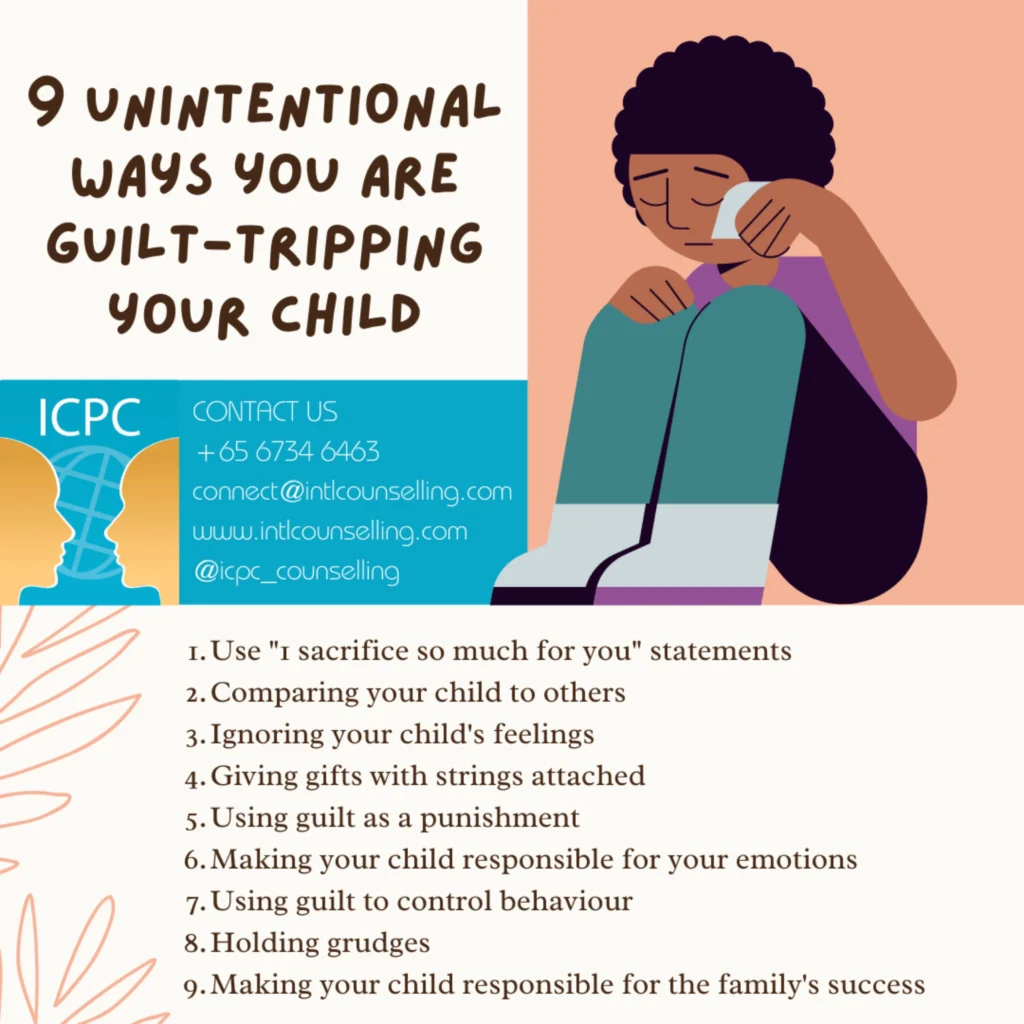
Break The Cycle! 9 Unintentional Ways You May Be Guilt-Tripping Your Child
Have you ever guilt-trip your child unintentionally?
If yes, what was the situation and how did you address it?
Guilt-tripping is a common parenting technique that can have negative long-term effects on a child’s emotional well-being.
Here are 9 surprising ways you may be guilt-tripping your child, the consequences of guilt-tripping, and how to avoid it:
-
- Using “I sacrificed so much for you” statements: These statements can make a child feel guilty and responsible for their parents’ sacrifices. Instead, focus on the positive aspects of the sacrifice, such as the joy it brings to the family.
- Comparing your child to others: This can cause your child to feel inadequate and guilty for not living up to expectations. Instead, focus on your child’s unique strengths and accomplishments.
- Ignoring your child’s feelings: This can make a child feel guilty for having emotions and may cause them to suppress their feelings in the future. Instead, validate your child’s feelings and offer support.
- Giving gifts with strings attached: This can make a child feel guilty for not reciprocating the gift in the desired way. Instead, give gifts freely without expecting anything in return.
- Using guilt as a punishment: This can create a negative association with guilt and cause a child to avoid taking responsibility for their actions. Instead, focus on teaching your child to take responsibility and make amends for their actions.
- Making your child responsible for your emotions: This can make a child feel guilty for causing their parent’s negative emotions. Instead, communicate your emotions in a healthy way and teach your child to express their emotions as well.
- Using guilt to control behaviour: This can create a toxic dynamic where a child feels guilty for not meeting their parents’ expectations. Instead, focus on positive reinforcement and clear communication.
- Holding grudges: This can make a child feel guilty for making mistakes and can damage the parent-child relationship. Instead, focus on forgiveness and working towards a resolution.
- Making your child responsible for the family’s success: This can make a child feel guilty for not meeting the family’s expectations and can lead to burnout. Instead, encourage your child to pursue their own passions and support them in their endeavors.
Here are some tips for helping your child deal with guilt:
-
- Teach your child the difference between healthy guilt and unhealthy guilt.
- Encourage your child to take responsibility for their actions.
- Validate your child’s feelings and offer support.
- Encourage forgiveness and working towards a resolution.
- Promote open and honest communication.
In conclusion, guilt-tripping can have negative long-term effects on a child’s emotional well-being. By avoiding guilt-tripping techniques and promoting open and honest communication, parents can help their children develop a healthy relationship with guilt and take responsibility for their actions in a positive way.
How can parents break the cycle of guilt-tripping and develop a positive and healthy relationship with their child?
If you or someone you know is struggling with the issue of guilt-tripping or would like to explore more ways to improve communication and emotional well-being with your child, please don’t hesitate to get in touch with our mental health professionals today. We offer personalized advice and support to help you and your family navigate this issue.
